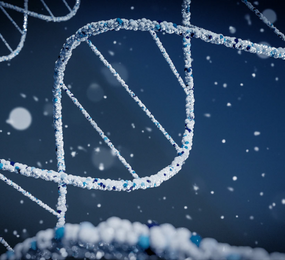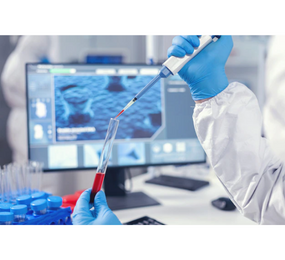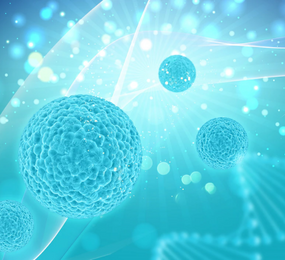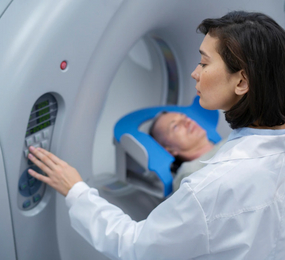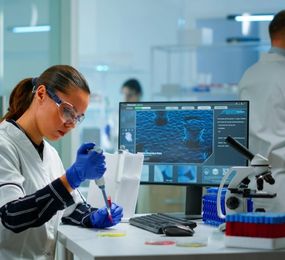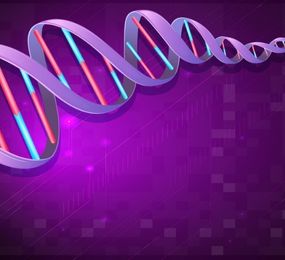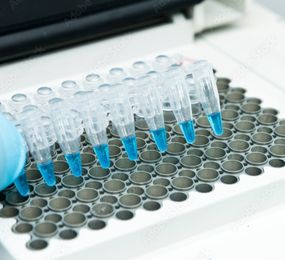Bispecific antibodies (BsAbs) can provide a number of obstacles in terms of product expression, purification, product stability, and scaling up of the manufacturing process, compared to the creation of standard monoclonal antibody (mAb) therapeutics. Therefore, CMC techniques are essential for developing and marketing bispecific medications in addition to molecular design efforts.
A new and possibly very profitable market for next-generation antibody products is bispecific antibodies. They are artificial immunoglobulins that can attach to two distinct epitopes on the same or other antigens. Therapy with immunoglobulin G (IgG)-like BsAbs demonstrates active immunisation against particular cancers, which in the future may encourage more usage of this format to give the body long-lasting antitumor immunity.
In contrast to typical mAbs, which are molecules that can only recognize one antigen, "bispecific antibodies" refer to molecules that can detect two distinct antigens or epitopes. BsAbs range from tiny proteins with two connected antigen-binding fragments or they can be big immunoglobulin molecules with additional domains attached.
The main distinction between bsAbs and mAbs is that the former can bind to two antigens at once, whilst the latter can only do so with one.
The transition of bsAbs from the research to clinical stages of development has historically proven challenging, despite the fact that they represent a potential new wave of therapies.
In the research and development stages, bsAbs exhibit a substantial degree of complexity when compared to mAbs. Technical considerations, particularly those related to chemistry, manufacturing, and controls (CMC), as well as mechanistic or biological complexity, provide specific difficulties.
To characterise the potential therapeutic efficacy, toxicity, pharmacokinetic/pharmacodynamic profiles, and immunogenicity risk of bsAb therapeutic candidates at the research stage as well as at the preclinical and clinical development stage, in addition to CMC challenges, special testing systems are required. In comparison to the systems used to evaluate mAbs, several of these systems could be rather complicated.
Therefore, many companies are creating new bsAb technologies to address these technical difficulties.
Want to find out more? Join industry experts on March 28–29, 2023 at the Steigenberger Airport Hotel, Berlin, Germany as they discuss Clinical CMC for bispecific antibody development.
To register or learn more about the Forum please check here: https://bit.ly/3zxguXW.
For more information and group participation, contact us: [email protected]


